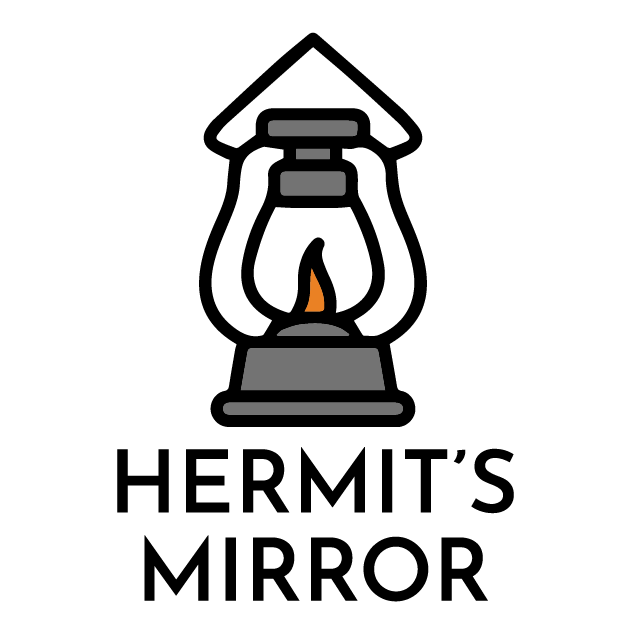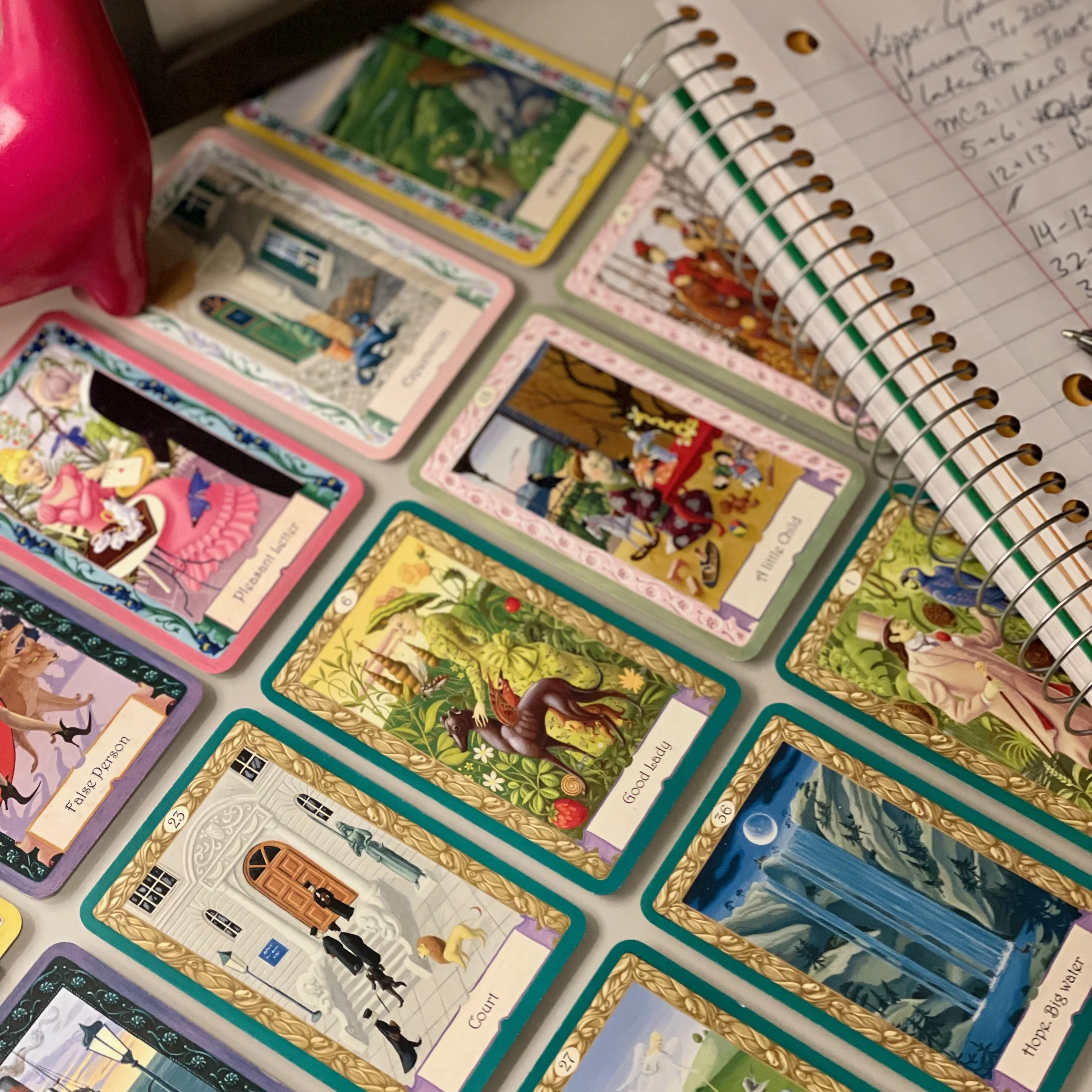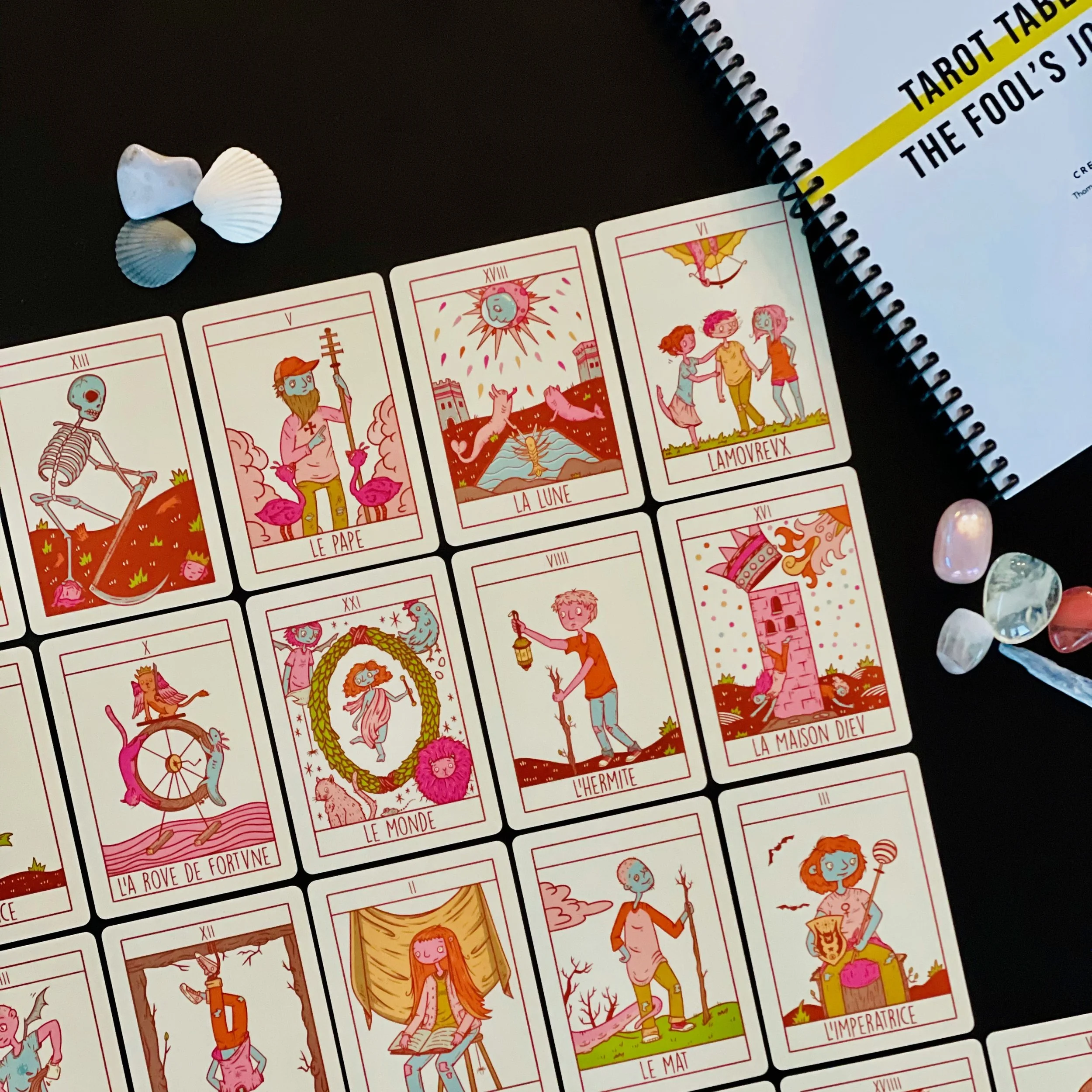The Power of Tableaux for Predictive Readings
So you want to see the big picture?
Last fall I was chest-deep in the waters of Kipper cards—a 19th-century German cartomancy system—and working on the Seaborn Kipper when I decided to try out my first 36-card tableau using that system. It was eerily accurate, and it gave me information that was actionable. It in fact warned me about a shock that I would receive the next day, and it forced me to think about the possibility of what might happen—something not in my conscious mind at all—so that I could face it prepared.
In my reading, I saw my partner stepping right out of the picture. I was looking at the first column—meaning within a week of the reading—and my counterpart in the deck (Principal 2) was there, facing left, and about to move on out of the tableau. Now, this was a career reading about my day job, so this partner was not my actual life partner but my workplace counterpart—my “work wife” but also my equal, the only other person in the company with my same role. (Clear intentions are important!)
A tableau using all 36 cards from the Mystical Kipper by Regula Elizabeth Fiechter and Urban Trösch, published by U.S. Games, Inc.
Even though this wasn’t my life partner, it was still a shock to see them stepping right on out of my (work) life. This person had been with the company for almost twenty years, she loved almost everyone she worked with, and she was very positive about our division’s future. But she was tired of all the extra work she was having to do and the problems of coordinating home life and work life now that they were blended in remote working. So when I saw this inauspicious placement showing her completely over everything—nothing but baggage behind her and emptiness ahead—I knew that she was on the verge of bouncing out of the whole situation. And I knew I needed to reach out to her to see how she was doing.
It was late at night when I did the reading, so I wasn’t about to text her. But as soon as work started the next day, I messaged her to see if I could take on any work tasks for her because I knew she was stressed and overworked. She thanked me and said that she would let me know but that she thought that she was past the worst of it. And it turned out she was. By the end of the day, she had told me that she had accepted a position with another company, and it broke her heart that she couldn’t tell me as soon as I was offering to help her out. I was too late. She’d already made her decision.
You may think that means that predictions like this are not helpful, but I promise you that even last-minute predictions can be helpful in some ways.
It’s true that what was going to happen did in fact happen, and there was nothing I could do to change the decision made by that particular person. I can’t control other people’s behavior. I can control only how I plan to act on the information I have. In this case, the timing was bad for trying to persuade my counterpart not to leave. Maybe I should’ve tried the tableau a week or two earlier. But as is, there was still important information on which I could act.
That’s because it still gave me the prompt to start thinking about what life at work might be like if my counterpart left. It wasn’t going to be pretty, and we would need to make changes to our organization I also just emotionally needed that heads-up, however short, because I wasn’t thinking about the possibility that she would leave. Had I not seen any sign of it, it would have caught me entirely off-guard. So it helped prevent an emotional gut punch It also gave me a reason to start planning for how my group could reorganize in the transition period, and that was actually really important given the timing of the news.
But this particular prediction had important repercussions for myself as a diviner and a future fate-weaver. That’s because I got to see (very quickly) that what I had seen in my tableau was accurate in both fact and in timing. If that one part of the reading was right, it was worth thinking seriously about the rest of the tableau and the possibilities it presented. And that is where the magic is.
Suspending my disbelief and not questioning my ability to read in this new way was incredibly powerful for helping me focus my efforts over the time period shown in the reading. Whether anything else ended up being “right” in that reading didn’t really matter because predictive readings are tools for organizing your future thoughts and actions.
I’m sure there were some things that were accurate in the rest of the reading and other things that weren’t. And no doubt there were things that I thought should have been in that reading because they were important, but they weren’t there, so I couldn’t organize my life around them. That’s fine. Sometimes, more information is not more helpful for making good decisions about life. The wrong information can stop you in your tracks and paralyze you if you’re not prepared for it. But having a little bit of information about various parts of your life can be incredibly useful for activating future change. It gives you a point of consideration for each of those areas. It gives you many little starting points. And that’s where tableaux (plural of tableau) shine.
A tarot tableau using the independently published Squid Cake Marseille by Jess Rollar.
A tableau (French for table or picture) is a large card spread made up of rows and columns in a grid. Since they usually involve the entire deck (36 for Kipper and Lenormand readings) or a significant portion of it (all 22 major arcana in my own Tarot Tableau method), a tableau reading can give you insight into all aspects of your life. There’s no question of whether an area will be covered because every card is there. This type of reading is often called a grand tableau, which is French for both big table (because you need a large space to lay out all those cards) and big picture (because it offers you a glimpse at the big picture of your future).
This breadth makes tableaux great for looking into the future and confirming your predictions, as I was able to do in that Kipper tableau. That’s because there are so many cards and so many areas of your life that show up in various configurations, so you’re likely to find some very helpful bits of advice. Your readings may actually feel quite prescient before long because, honestly, the odds are in your favor that something in your prediction will turn out to have been right, either directly or by analogy. But that’s not a bad thing. Whether your predictions are right because you think it’s a numbers game or because you’re psychic doesn’t change the fact that you were able to forecast something accurately. And the psychological impact that an accurate prediction can have on your confidence in forecasting your own future can be profound.
I won’t say that it’s rare that I receive eerily accurate or precise insights into a client’s situation. It happens regularly, but it’s not my focus. At best, it’s a neat party trick, and at worst, it’s ego stroking. It doesn’t matter whether I know about some secret symbol that my querent has on their diary or a tattoo that their romantic interest has or the name of a new company they’ll interview with. That kind of “psychic hit” rarely helps a client chart their future, but it can help them act on the reading indirectly. That’s because most of us enter into intuitive work with a bit of skepticism. The psychic hit acts as confirmation that we’re not wasting our time.
Healthy skepticism is important as a consumer of anything, but it’s especially useful for setting the right expectations when you’re working with something as intangible as spirituality. It’s very easy to take advantage of someone and to be taken advantage of when disbelief is suspended. That doesn’t mean that you shouldn’t suspend your disbelief. On the contrary, you probably need to in order to fully take in a reading. But you want to make sure that you aren’t giving away your autonomy and relinquishing common sense or appropriate boundaries.
Insights that seem unknowable by any normal means help us to suspend our disbelief and enter into a world of possibility. Some readers refer to these insights as “psychic hits” because they don’t seem to come from anywhere other than through the psychic “clairs” (clairsentience, claircognizance, etc.). But whether they’re psychic or predictive or intuitive or subconscious doesn’t really matter. What’s important is that it helps ground your reading in belief, in possibility. You and the client understand that you've tapped into something special, and you’re not just saying random things. And if that’s true, it’s possible that the reading as a whole is more valid. And if it’s possible that the information is an accurate forecast, then it’s information worth acting on.
You shouldn’t relinquish your decision-making powers to a prediction, but you can use predictions as a catalyst for the change you want to make in your life.
Most of us come to the cards, especially to predictions about the future, because we want either stability or change. What we see in the cards is often open to adjustment and reinforcement, and so we get to focus our attention on the things that we want to maintain or the things that we want to change. Sure, we can do that without a predictive reading. But a lot of us don’t. There’s too much to think about. There are too many options when we do think about them. And we don’t realize which ones are important until they’re highlighted. There’s nothing like the fear of a change you don’t want (or stagnation where you want change) to get you focused on a different outcome.
Acting on the information you divine in a predictive reading, or even knowing how you can interpret that information as actionable, will take a different skill set. But at least you can’t say that you didn’t know.
So to bring it all back together for the TL;DR crowd …
Tableaux provide an opportunity to make predictions in many areas of your life.
With so many areas touched upon, at least some of those predictions are likely to be right.
Since some of the predictions will probably be right, you might as well use the information from the whole tableaux to proactively navigate your future.
Proactively thinking about your future and how to work with or around what’s coming—real or hypothetical—helps you focus on where you are now and what goals you want to accomplish, as well as how you can make those dreams a reality.
Having thought through these things, you’re more likely to be prepared for whatever is coming.
Being prepared means that you’re less thrown off-course and you’re more likely to notice (and thus more able to take) opportunities that get you closer to your goals.
And that’s a powerful way to weave your future fates.


